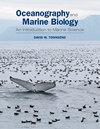THE ECOLOGICAL AND EVOLUTIONARY IMPORTANCE OF MATERNAL EFFECTS IN THE SEA
1区 生物学
Q1 Agricultural and Biological Sciences
引用次数: 146
Abstract
Maternal effects are non-genetic effects of the maternal phenotype or environment on the phenotype of offspring. Whilst maternal effects are now recognised as fundamentally important in terrestrial systems, they have received less recognition in the marine environment despite being remarkably common. The authors review the maternal effect literature and provide a simple framework for understanding maternal effects that increase offspring fitness (termed anticipatory maternal effects) and maternal effects that increase maternal fitness at the expense of offspring fitness (termed selfish maternal effects). The review then addresses various well-studied (offspring size effects, maternal care, oviposition effects) and poorly studied (manipulating offspring dispersal potential, toxicant resistance, sibling competition, mate choice) examples of maternal effects in the marine environment with a focus on marine invertebrates and fish. Offspring size effects are strong and pervasive in the marine environment but the sources and underlying causes of offspring size variation remain poorly understood. More generally, the authors suspect that changes in offspring phenotype are often adaptive maternal effects in response to environmental change. Maternal effects are of particular importance to marine systems because they not only form a link between the phenotypes of different generations, but the biphasic life cycle of most marine organisms suggests that maternal effects also link the phenotypes of populations.海洋中母体效应的生态和进化重要性
母体效应是母体表型或环境对后代表型的非遗传效应。虽然现在已认识到母性影响在陆地系统中具有根本重要性,但在海洋环境中,尽管它们非常普遍,但得到的认识却较少。作者回顾了母体效应的文献,并提供了一个简单的框架来理解母体效应增加后代适应性(称为预期母体效应)和母体效应增加母体适应性以牺牲后代适应性(称为自私母体效应)。然后,回顾了海洋环境中母亲影响的各种研究充分的(后代大小影响,母亲照顾,产卵影响)和研究不足的(操纵后代扩散潜力,毒物抗性,兄弟姐妹竞争,配偶选择)的例子,重点是海洋无脊椎动物和鱼类。在海洋环境中,后代尺寸效应是强烈而普遍的,但后代尺寸变化的来源和潜在原因仍然知之甚少。更普遍的是,作者怀疑后代表型的变化通常是母亲对环境变化的适应性影响。母体效应对海洋系统特别重要,因为它们不仅在不同世代的表型之间形成联系,而且大多数海洋生物的双相生命周期表明,母体效应也将种群的表型联系起来。
本文章由计算机程序翻译,如有差异,请以英文原文为准。
求助全文
约1分钟内获得全文
求助全文
来源期刊
自引率
0.00%
发文量
0
期刊介绍:
With increasing interest in the field and its relevance in global environmental issues, Oceanography and Marine Biology: An Annual Review provides authoritative reviews that summarize results of recent research in basic areas of marine research, exploring topics of special and topical importance while adding to new areas as they arise

 求助内容:
求助内容: 应助结果提醒方式:
应助结果提醒方式:


